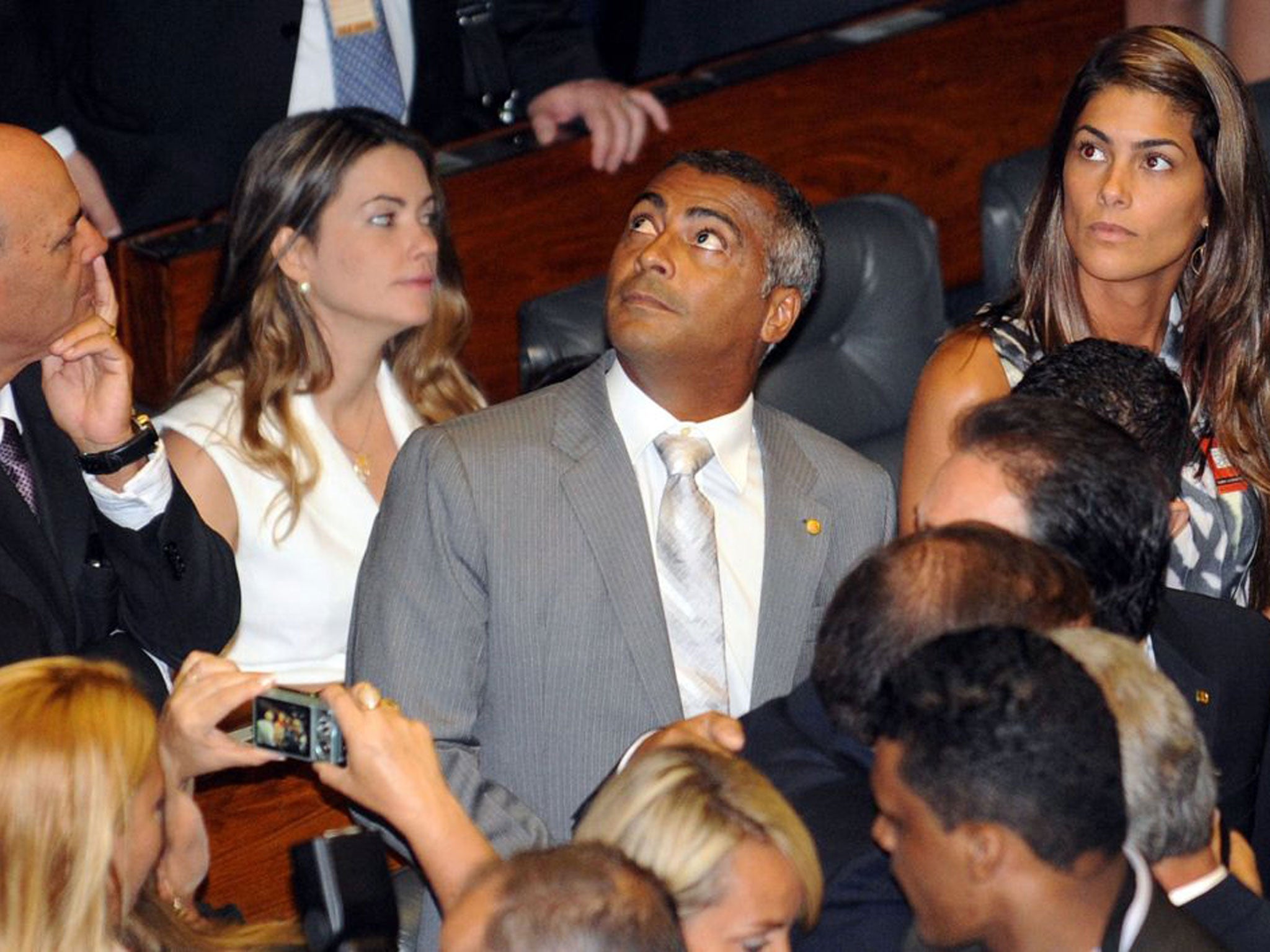Romario sticks boot into the costly Fifa roadshow
One of Brazil’s most famous players is now outspoken critic of their attempts to host the finals

Your support helps us to tell the story
From reproductive rights to climate change to Big Tech, The Independent is on the ground when the story is developing. Whether it's investigating the financials of Elon Musk's pro-Trump PAC or producing our latest documentary, 'The A Word', which shines a light on the American women fighting for reproductive rights, we know how important it is to parse out the facts from the messaging.
At such a critical moment in US history, we need reporters on the ground. Your donation allows us to keep sending journalists to speak to both sides of the story.
The Independent is trusted by Americans across the entire political spectrum. And unlike many other quality news outlets, we choose not to lock Americans out of our reporting and analysis with paywalls. We believe quality journalism should be available to everyone, paid for by those who can afford it.
Your support makes all the difference.Romario was never one to be carried along on the current – not in his playing career, not in his remarkable second life as a crusading left-wing Brazilian politician.
He was a spiky, stocky, feisty striker, a little bull capable of causing carnage in the penalty area given a fraction of a chance, single-minded in his pursuit of goals. And he has taken the same approach into the Brazilian parliament, where he has sat as a member of the Brazilian Socialist Party for the last three years.
With the Confederations Cup in Brazil next month and the World Cup there next year, this might be a moment for national sporting celebration, for the nation’s football community to come together in mutual congratulation. And who would be a better part of this than the great Romario, with his 70 caps, his 55 goals, his 1994 World Cup winner’s medal and his heroic club record for Flamengo and Vasco da Gama?
But Romario wants no part of it. Rather than slap backs, Romario – never attention-averse – is using his role as president of the committee for tourism and sport to campaign against elements of the forthcoming World Cup, the money it is costing and the impact it is having on the Brazilian poor.
World Cups are expensive to host and Romario is publicising the huge sums spent and the damage done, such as the new $500m (£328m) 72,000-capacity national stadium in Brasilia, a relative footballing backwater, or the impact the redevelopment of the Maracana is having on local schools.
“Fifa comes here, and sets up a state within our state, and it will leave with $2bn-$3bn in profits,” Romario told BBC radio. “And then what? What about the white elephants, the stadiums, costing nearly $2bn? That could have been spent on education and health – much more important for our country.
“The best for Brazil is to have the World Cup, but there are some contractual obligations between Fifa and the host nation that we can’t accept. If they went to Germany with 100 demands they would get 30. If they went to the US they would get 10. When they came to Brazil with those 100, they got 90. Brazil just opened its legs. And until the end of the World Cup, Fifa just told Brazil what to do.”
Romario started to think about going into politics in 2005 after the birth of Ivy, his sixth child, who has Down’s syndrome. Romario was then 39 and winding down his playing career, but he decided to enter politics campaigning for the rights of those with special needs. Early into his rather unlikely parliamentary career, Romario played an important part in helping pass legislation to provide better welfare for the disabled.
But Romario has made the greatest noise in his campaign against the Brazilian football federation, the CBF. He was strident in his attacks on Ricardo Teixeira, the old president who stepped down last year, even describing him as a “cancer”. And, never cowed, Romario has been just as ferocious against his replacement, Jose Maria Marin.
Marin was a politician in the 1970s who has been accused of praising the secret police and, in particular, denouncing the work of TV Cultura, before the violent death in custody of its head, the journalist Vladimir Herzog. Romario has branded Marin’s relationship with the governing dictatorship of the time as “evil” and was instrumental in delivering a petition with 54,000 signatures to the CBF, campaigning for the removal of Marin.
Romario said that it made him sad “to see the CBF being passed from one crook to another” and Marin launched legal proceedings against him, but the veteran centre-forward will not shy away from controversy.
Romario sides with Brazil’s president, the socialist Dilma Rousseff, herself imprisoned at the hands of the regime in the early 1970s, and has said that he does not want to see her alongside Marin when the World Cup comes next year.
Ultimately, the World Cup is one of the most powerful forces in sport and there is not much that even one of the greatest strikers of the modern era can do to slow down its march. The finals in Brazil will happen, and bring changes with it, with all the inevitability of an event with that much money riding on it.
But Romario De Souza Faria, who played in 1990 and 1994, only missing 1998 through injury, will continue to make his case that not everything it brings is good, that the lives of ordinary and underprivileged Brazilians will be disrupted and that, even though Fifa promised “All in one rhythm” as their World Cup slogan, there are some voices that will be ignored.
Join our commenting forum
Join thought-provoking conversations, follow other Independent readers and see their replies
Comments